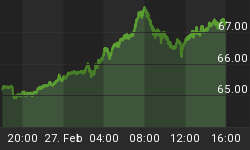Millennials as young as 23 are already stressing out about retirement, but now they are taking on another element of stress: How to help out with their parents’ retirement.
According to a survey from AgeUp, 68% of Millennials and their immediate successors, Gen-Z, expect to provide financial support to their parents should they outlive their resources.
Yet, almost none is aware of their parents' finances, and none has a clue as to how prepared their parents are for retirement. Something that could hurt their own finances in the future.
Additionally, 80% of Millennials and the preceding generation, Gen-Xers, surveyed agreed that parents and in-laws should be taken into account when thinking about their own long-term financial plans. However, only 37% have already taken any measures to that end.
The researchers said that the findings confirm one very important thing: The country is facing a looming financial crisis and no one is prepared.
“As the Baby Boomer generation grows older, the gap between their retirement savings and longevity will increase exponentially – and the financial burden is poised to fall squarely on the shoulders of their adult children,” the report said.
According to a different survey, this time by TD Ameritrade, some 13% of Americans said they are already supporting a parent, including 19% of Millennials.
Yet, younger generations are also struggling under the weight of student loan debt, recession, self-funding their own retirements and wage stagnation in the last decade.
Unfortunately, many Millennials think they’ll be working until they die. A third of Millennials don’t think they’ll ever be able to retire, and a third regret the money they spent on college or home mortgages.
On average, Millennials start saving for retirement at the age of 24, while Gen-Xers started at age 30, and Baby Boomers—despite all their wisdom—didn’t start until age 35. Despite that, Millennials have less wealth than their parents.
According to a study by MagnifyMoney, back in 1998, the average household aged 20-35 had a net worth of $103,400 compared to an average net worth of $747,600 for a household aged 52-70 years, or 7 times bigger for the older generation.
Fast forward to the present, and the gap has widened to 12x, with the younger generation boasting an average net worth of just $100,800 compared to $1,210,100 for the older generation.
In other words, baby boomers are actually 3% richer than their cohorts 21 years ago after accounting for inflation. In the same vein, Millennials are 38% poorer than their counterparts historically.
Millennial finances took a hit in the 2008-2009 financial crisis, and the rising cost of higher education hasn’t helped, either. According to a recent Bank of America survey, 16 percent now have savings of $100,000 or more.
Also, according to the National Institute on Retirement Security, some 66% of Americans between the ages of 21 and 32 have nothing saved for retirement.
It also suggests that 95% of Millennials aren’t saving enough for retirement, and just over one-third participate in employer-sponsored retirement plans. Exacerbating the situation, Millennials also face a higher life expectancy, lower-income replacement from Social Security, and are less likely to have a traditional defined benefit pension.
By Michael Scott for Safehaven.com
More Top Reads From Safehaven.com:
















